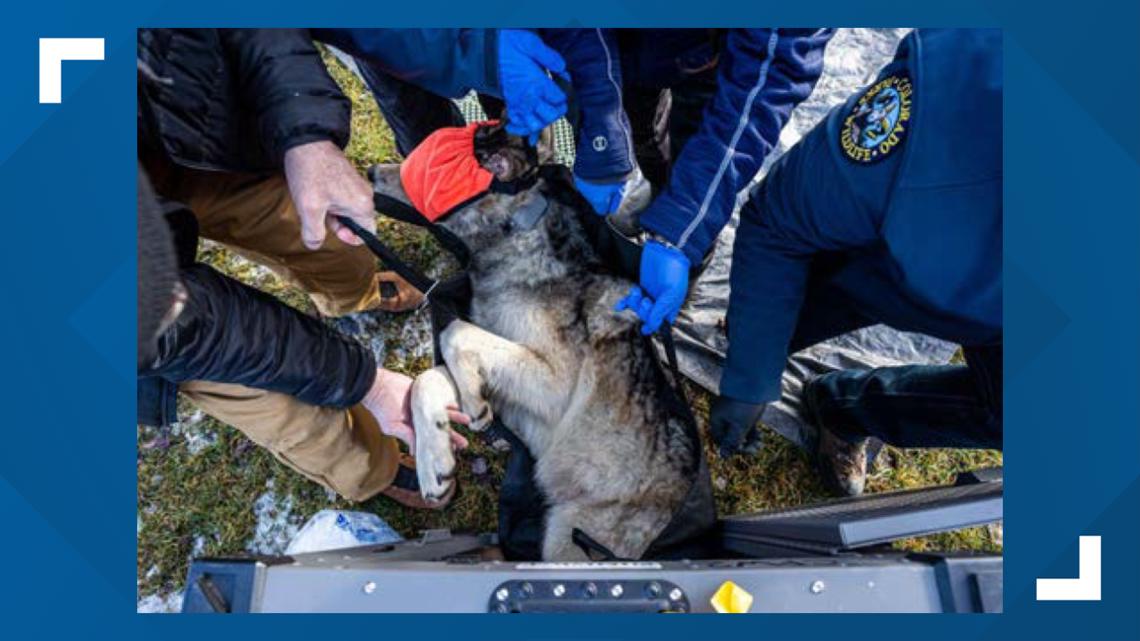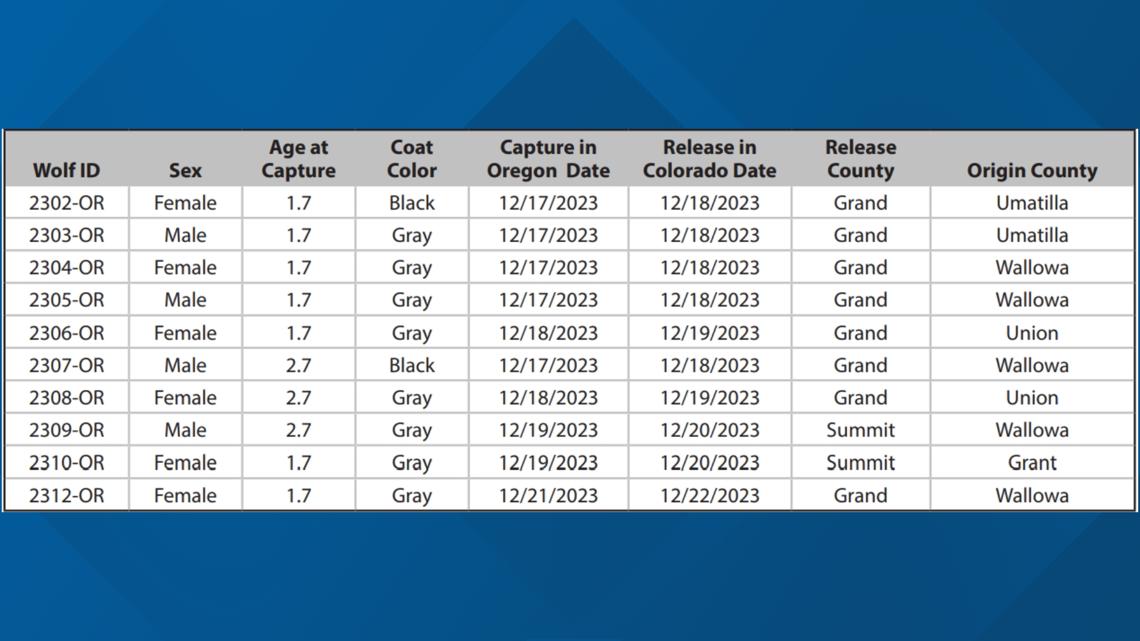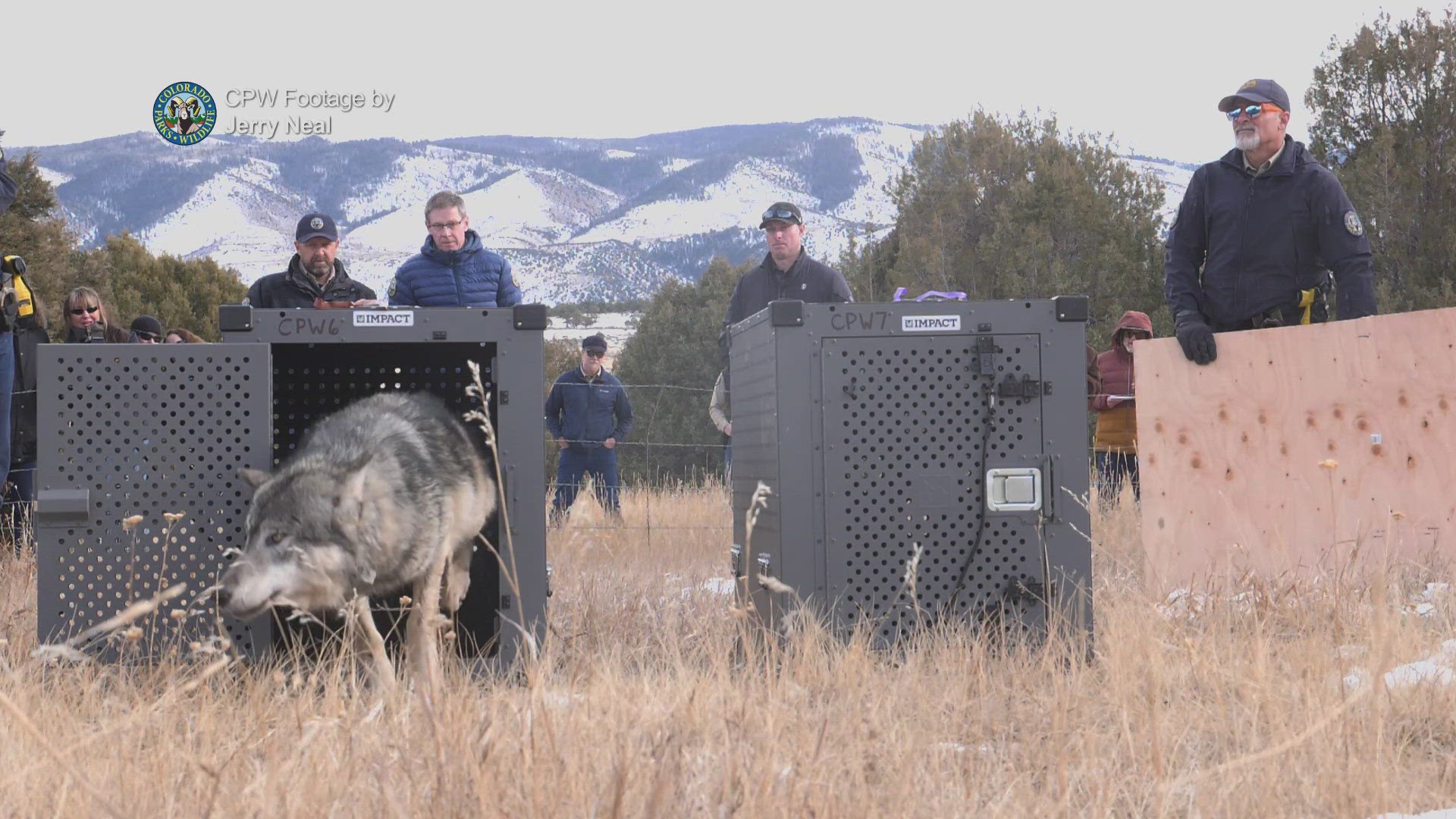DENVER — One of Colorado's new wolves endured a 17-hour drive from Oregon before it was released in Grand County. The nine other wolves arrived by plane, according to Colorado Parks and Wildlife's annual gray wolf report, released on Wednesday.
The report relies on data from the "biological year" which was April 1, 2023, through March 31, 2024. This does not include data or information on any livestock killed by the new wolves. CPW confirmed the first depredation this year on April 2.
Thirteen CPW employees went to Oregon to capture wolves. In total, 19 people participated in the operation. That included two Oregon state biologists, pilots, a spotter and a gunner.


Colorado wolves capture and release
For the first time in this report, CPW published extensive information on how old the wolves were when they were captured and where they were captured from. This chart comes from the report:


CPW's capture effort started in Oregon on Dec. 17. That day, they captured five wolves. CPW captured two wolves on Dec. 18 and two on Dec. 19. CPW captured its 10th and final Oregon wolf on Dec. 21.
2312-OR came to Colorado in a car, "As this was most logistically feasible," the report states. Eight of the 10 wolves were released in Grand County.
2303-OR is no longer alive. The state found the wolf dead in April in Larimer County. A necropsy found a mountain lion most likely killed it.
Wolf conflict mitigation
The report reasserts ranchers must contact CPW to request a desire or need for help.
Between April 1, 2023, and March 31, 2024, CPW deployed 7.5 miles of fladry, a nonlethal tool to protect livestock, mostly in Jackson County. CPW reports wolves did not kill any livestock while fladry was deployed.
Twenty out of 24 people who asked for help received it. CPW reports requests for help were denied in Gunnison and Summit Counties, and partially denied twice in Jackson County.
At the end of the reporting period, CPW had 15 miles of fladry.
Colorado wolf research
CPW reports there are several research projects underway related to Colorado's wolves. On at least one occasion, CPW has used the existence of these projects to deny a 9NEWS public records request.
The report says research topics include the following: Elk movement, moose, wolf social dynamics and human social trust.
CPW is in the middle of an operation to capture and relocate two of the reintroduced wolves and their pups.

